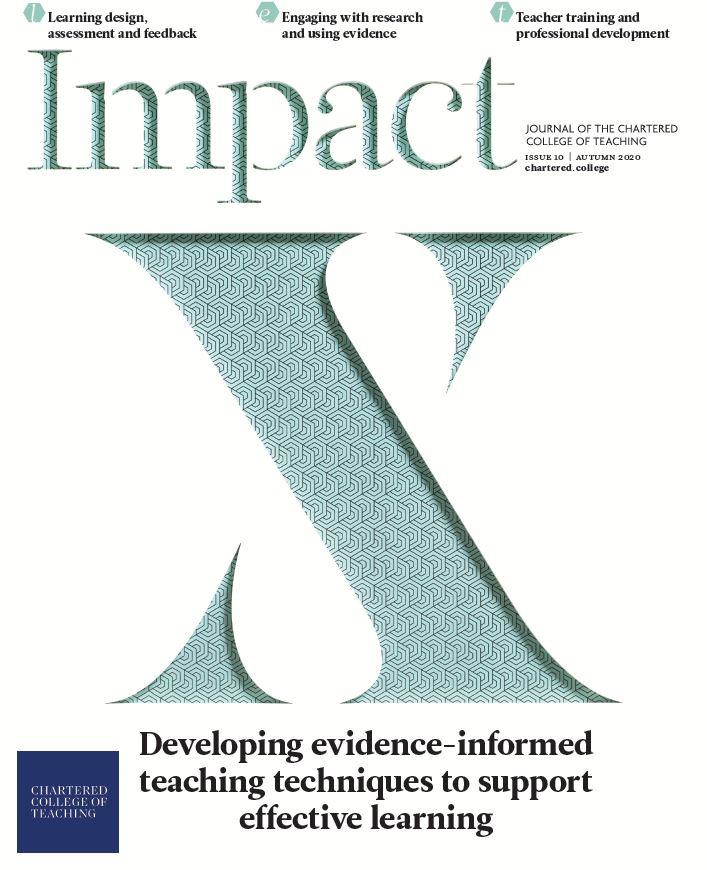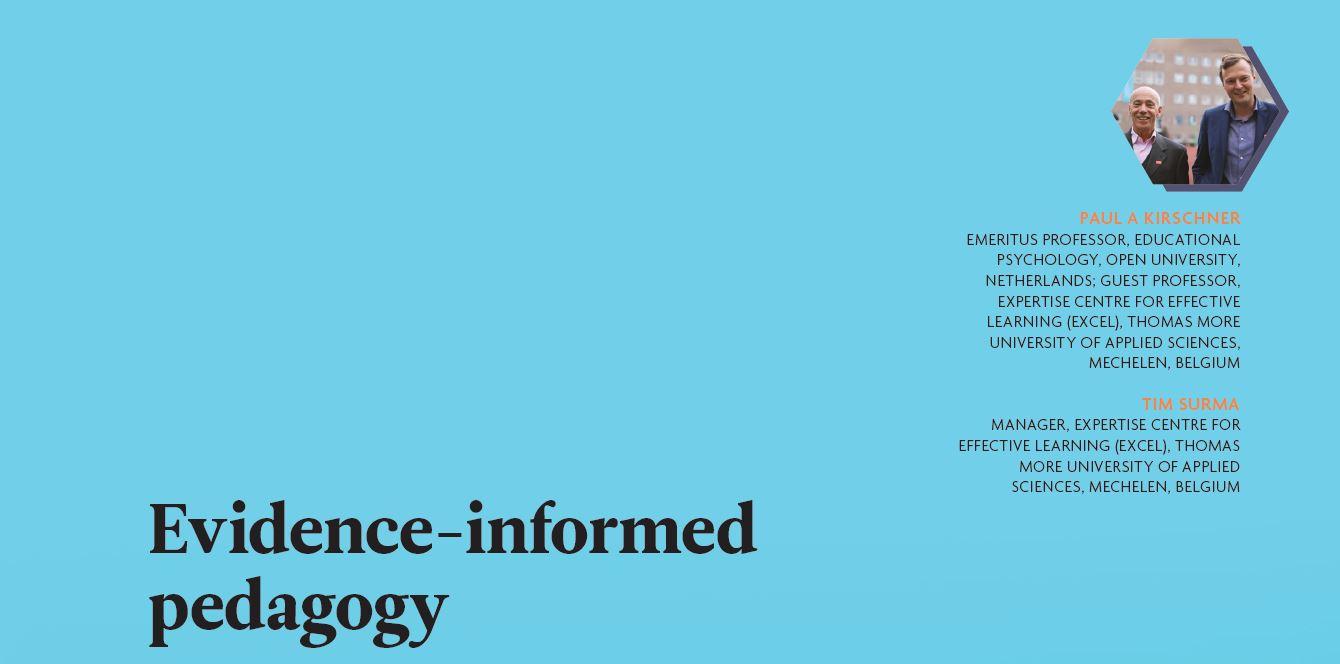Over Evidence Informed Pedagogy: de nieuwe editie van Impact Magazine
14 september 2020

Morgen landt bij duizenden Engelse leraren, onderzoekers en andere onderwijsliefhebbers het invloedrijke tijdschrift Impact in de brievenbus. Impact is het tijdschrift van Chartered College of Teaching, de Britse nationale beroepsverening voor de leraar. Voor deze editie, getiteld ‘Developing evidence-informed teaching techniques to support effective learning’, zijn Paul A. Kirschner en Tim Surma gast-editors. Ze schreven de editorial ‘Evidence Informed Pedagogy’ over het gebruik van evidentie in de klas. Het vakkundig beheersen van je repertoire als leraar staat centraal. Paul en Tim zijn verbonden aan het ExpertiseCentrum voor Effectief Leren (ExCEL). Binnen de editorial board bevinden zich ook o.a. Dylan Wiliam, Becky Francis, Stuart Kime en Rob Coe.
Het tijdschrift omschrijft zichzelf als
“Impact is the termly journal of the Chartered College. It connects research findings to classroom practice, with a focus on the interests and voices of teachers and educators. It supports the teaching community by promoting discussion around evidence within the classroom, and enabling teachers to share and reflect on their own use of research.”
In dat opzicht deelt Chartered College of Teaching dus dezelfde doelen als ExCEL. In hun editorial gaan Paul en Tim dieper in op de achterliggende concepten achter ‘Evidence Informed Pedagogy’. Vanaf wanneer beschouwen we een beroepspraktijk als evidence-based dan wel evidence-informed? Hoe breed of nauw reikt pedagogie?
Ze maken daarbij een onderscheid tussen enerzijds de goed gedocumenteerde principes, gekend uit decennia aan onderzoek en praktijkervaring, en anderzijds de ruimere doelen van onderwijs die zich moeilijker laten meten.
“What do we know about teacher repertoires? We have already learned a lot about classroom practices from the abundance of quality research conducted in laboratories and schools, online and offline, and virtually anywhere and any time when teaching and learning take place. The evidence is out there. Over the past few decades, researchers have designed interventions and devised general techniques – frequently based on a two-way-street interaction between teachers and researchers – that work or do not work for particular learners of particular ages undertaking particular academic tasks in particular subject areas.”
“Although we may now sound endlessly full of self-confidence regarding evidence informing education, we must of course temper our enthusiasm to some extent: we obviously do not know the answer to every question, for the simple reason that education does not take place in isolation. The evidence is out there – but it’s neither definite nor complete. As an example, the concept of affect – which refers to students’ experience of emotion – is gaining growing recognition as an essential component in teaching and learning but still holds many secrets for both researchers and seasoned teachers (Mayer, 2018).
Bij het tijdschrift zijn steeds een aantal artikelen te lezen zonder paywall.

